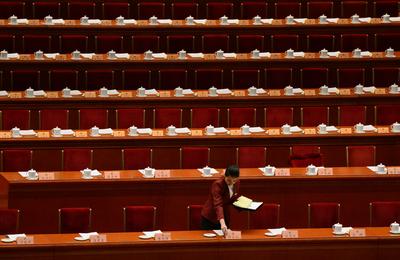(Eurasia Daily Monitor) The Cyprus issue has dominated political debates and intrigues in Moscow through last week, turning into a test of sorts for Russia’s ability to respond to acute external challenges. The financial disaster on the island that has become so intimately familiar to many Russians has by no means been averted, but the provisional result on the diplomatic test is clearly negative. President Vladimir Putin and Prime Minister Dmitry Medvedev expressed extreme displeasure with the “unprofessional” management of the calamity; all sorts of ideas (including establishing a naval base in the Russian-populated Limassol) were circulating as Cypriot Finance Minister Michalis Sarris was pleading his case in every Kremlin corridor. And in the end, Moscow opted for doing nothing to protect the very tangible Russian interests affected by the looming default (Kommersant, March 23). Besides revealing awkwardness in Russian decision-making and splits in the elites, the test has also brought to attention mutually reinforcing weaknesses in foreign and economic policies.
The key controversy in this situation perturbs Russia’s relations with the European Union. Moscow, on many occasions, indicated it was ready to be a part of the solution and was offended when Brussels and Berlin deliberately cut it out of the negotiations. President of the European Commission Jose Manuel Barroso was in Moscow last week for pre-scheduled talks with Putin and Medvedev. He found it opportune to express his deep conviction that in the EU there was no fear of—and much respect for—Russia, which is seen as a part of the European “family”; but the Commission head avoided any deal-making on the Cyprus issue (Moscow Echo, March 22). This rejection of a persistently offered contribution might appear to be a departure from common economic sense, but in fact it is a consequence of the growing concerns and even disgust in the EU with the export of Russian corruption, for which Cyprus consciously provided a major channel (RIA Novosti, March 22; Novaya Gazeta, March 19). This desire to curtail the flow of “dirty money” is reinforced by the strong shift in the European public opinion against the ugly manifestations of despotism by Putin’s regime, exemplified by the police raid on the human rights non-governmental organization Memorial last week (Colta.ru, March 22).
Despite the thick fabric of institutional networks and economic ties, Putin finds it increasingly frustrating to communicate with his European counterparts; so more rewarding was the meeting with China’s President Xi Jinping, who opted for making his first foreign trip to Russia (Gazeta.ru, March 21). The meeting was largely ceremonial, and the dress of the First Lady Peng Liyuan attracted more attention than the agreement on protecting migrating birds. Xi’s polite remark about the two leaders’ personal chemistry was Putin’s best reward for playing the overjoyed host (Moskovsky Komsomolets, March 22). It is, however, apparent that China’s lack of interest in the Cypriot drama accentuates the confusion in Russian diplomacy, which has grown accustomed to taking a clue from Beijing on major international matters.
China can afford to dispassionately monitor the impact of the Cypriot bank crisis on the EU’s financial mechanisms, but Russia cannot ignore the direct damage to its stagnating economy. Russia’s stock exchange has been falling steeply on the news from the former “safe heaven” for Russian “smart money.” Russian stocks recently hit a year-low, which is 40 percent lower than the maximum reached in summer of 2008 (Kommersant, March 23). The money that could be “expropriated” by the desperate government of Cyprus from the bank accounts is estimated at 2–6 billion euros ($2.6 billion–$7.8 billion). Furthermore, the crisis has brought about the breakdown of the off-shore accounting center that used to process tens of billions of dollars escaping from Russia that then partly returned under the “flag of convenience” (Forbes.ru, March 22). Medvedev admitted that Russian state organizations are affected by this disruption and suggested setting up an off-shore zone on Sakhalin—which hardly makes sense because security of operations cannot be guaranteed after Putin’s order to put an end to “offshoreization” (Vedomosti, March 22; see EDM, March 21). Russian money is also showing a diminishing inclination to return to Russia; the net outflow of capital in February reached $6 billion, which means that the finance ministry’s conservative estimate of this “export” at $15 billion for 2013 has already been surpassed (RBC Daily, March 20). Money will certainly find other escape routes; and the sharply increased perception of insecurity can make the Russian investment climate even more “Siberian,” so the predictions of a coming recession are gaining in convincing power (Vedomosti, March 22). […]
See the full article | © Eurasia Daily Monitor










